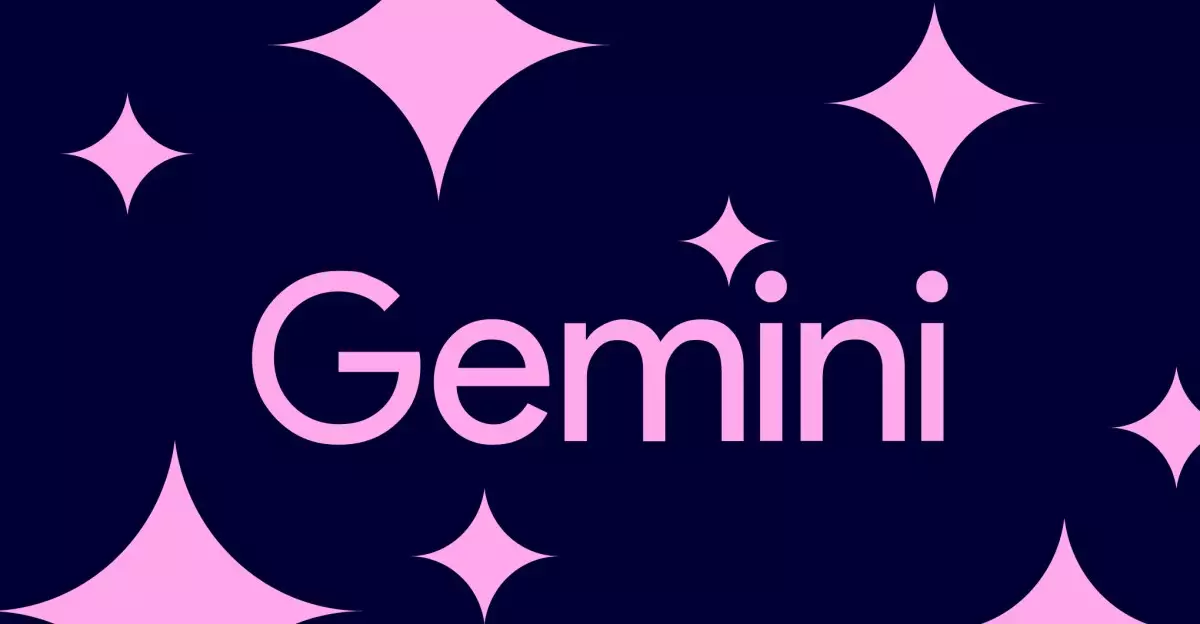In a bold move poised to revolutionize how children engage with technology, Google is set to launch its Gemini apps tailored for users under the age of 13. By leveraging managed family accounts, the tech giant aims to usher kids into a world where artificial intelligence enhances learning experiences. The integration of AI, particularly in educational contexts, is not merely about convenience; it’s about redefining learning and nurturing curiosity in young minds.
The introduction of Gemini represents a significant evolution from traditional educational tools. Instead of merely relying on textbooks or stale online resources, kids will have the opportunity to access interactive and engaging AI-driven applications that assist with homework and storytelling. This shift is crucial, as it aligns with the modern learner’s growing demand for interactive and immersive educational experiences that can adapt to individual learning paces.
The Balancing Act of Safety and Accessibility
Despite the immense potential of Gemini, Google faces the formidable challenge of ensuring child safety while fostering exploration. The company has proactively begun notifying parents through its Family Link parental controls, highlighting the exciting new capabilities available to their children. However, alongside the excitement comes an undeniable urgency to address concerns regarding inappropriate content and AI-generated errors.
Parents are rightly concerned about their children’s exposure to misinformation and inappropriate material, especially in a landscape still grappling with the ethical implications of AI. Google’s communication cautions parents that, while Gemini can provide helpful insights, it is not infallible. Alongside offering invaluable assistance, there is also the potential for eccentric recommendations—like suggesting glue as a pizza topping, which might not only confuse but also amuse.
The narrative of children potentially developing blurred lines between AI interactions and real-life connections, as seen in issues with other AI platforms, cannot be ignored. It is critical that Google not only acknowledges these concerns but also actively engages in robust discussions with parents about setting safe boundaries for their children’s use of technology. Having foundational conversations about the nature of AI can empower children to utilize these tools responsibly, understanding both their capabilities and limitations.
Encouraging Family Engagement and Digital Literacy
In addition to merely providing access to Gemini apps, Google’s rollout opens the door for families to engage more deeply with technology together. The encouragement for parental discussions reflects a growing recognition of the need for digital literacy in today’s tech-driven world. Families can actively participate in navigating AI’s myriad functionalities, creating an enriching environment that melds learning with shared experiences.
The importance of understanding digital safety through parental guidance cannot be overstated. Families will benefit immensely from fostering an environment where curiosity is cultivated with an awareness of online risks. As children experiment with Gemini’s capabilities, parents can take an active role, setting expectations and guiding their offspring on responsible technology use.
Ultimately, Google’s move to integrate AI applications for young users acknowledges both the immense possibilities of technology and the responsibilities that come with it. By navigating this delicate balance, Google stands at the forefront of creating an educational landscape that not only empowers children but also engages families in their tech-centric journey.

